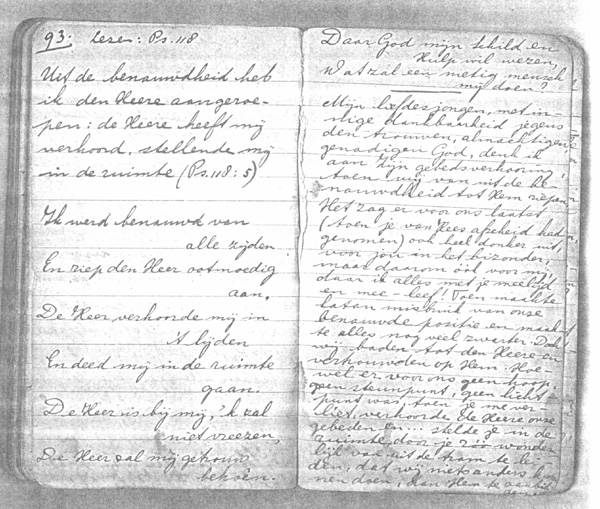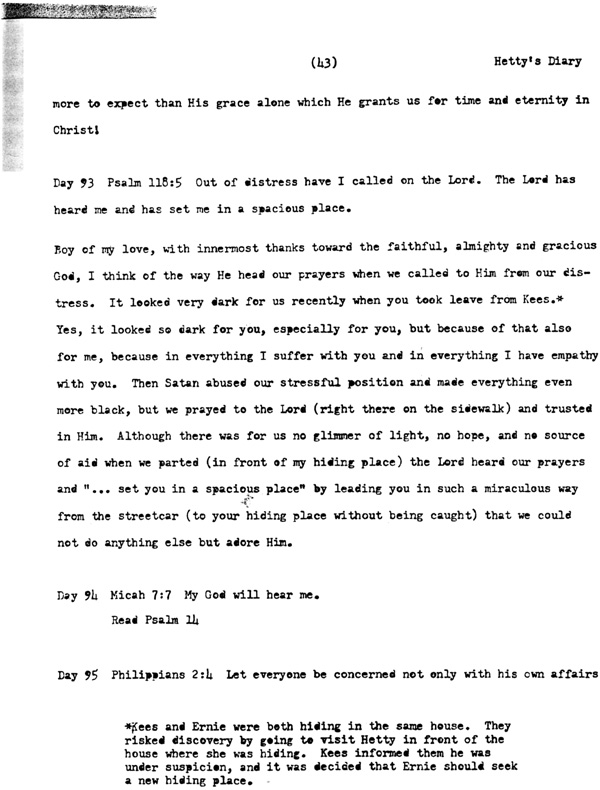|
family
photo gallery
|
| family main page| name page | documents | pedigrees | photo galleries | sitemap |
From
ancient times: Hetty Winkel  November 11 1922, Amsterdam - November 30 1943, Dorohusk, Poland Daughter of Jaap Winkel - the brother of Caroline Winkel - and Esther Querido. Caroline (Lien) Winkel was wife to Isaac (Ies) Cassuto. Hetty was born around 1920 and got engaged at the end of the thirties to Ernest Cassuto, second son of Ies and Lien, her cousin. During the war she was in hiding, a short period together with Ernest and then alone. She was betrayed during the summer of 1943 by a collaborator to the Germans and transported to the death camps, where she perished presumably in 1943. The same fate befell her mother Esther and her little brother Andries (Dee). Latest information about Hetty's death from George Cassutto Ezn: Hetty Winkel, we thought she had died in Auschwitz, but documentation showed that she was gassed in Chelmno, another one of the extermination camps. But the new database on the Yad Vashem site says: Dorohusk, Poland. |
||||
|
|
||||
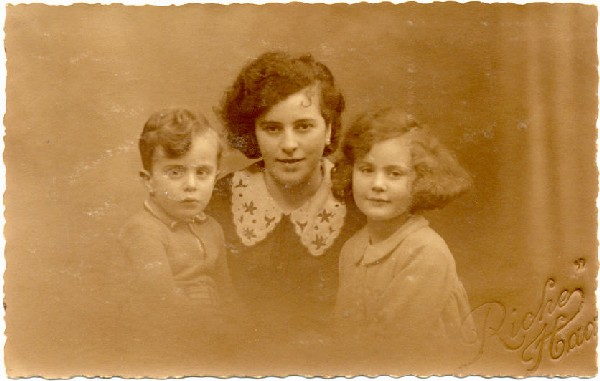 The same three, December 1, 1929 |
||||
|
|
||||
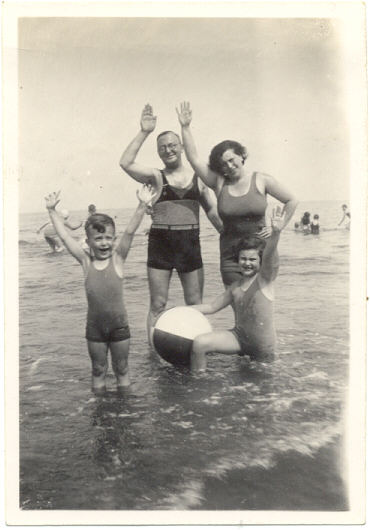
Family Winkel enjoying itself in - as the backside of the pic says - the "Noorderbad", maybe in Zandvoort or Scheveningen. From left to right: Dee, Jaap, Esther and Hetty, all waving to us from behind the time wall of the 5 years of world war II. |
||||
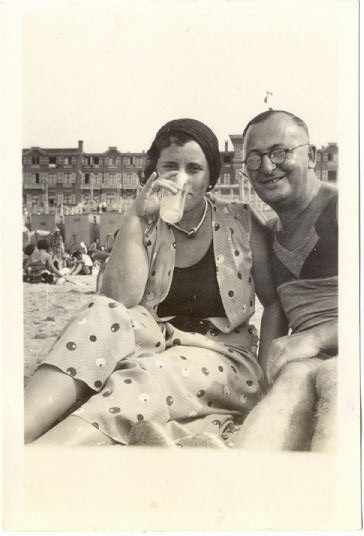 relaxed
picture of parents Esther and Jaap at the Scheveningen beach, August 1932 relaxed
picture of parents Esther and Jaap at the Scheveningen beach, August 1932 |
||||
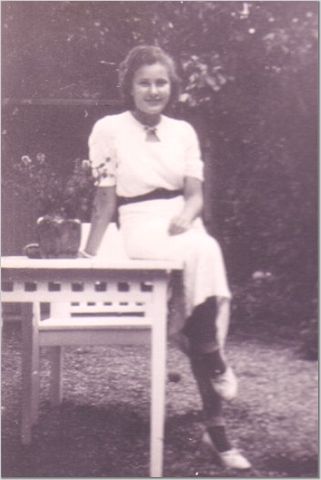 Hetty,
not dated. Hetty,
not dated.I estimate she's about sixteen here. |
||||
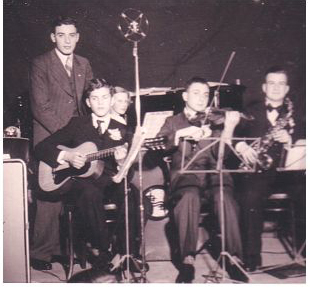 The
band of Ernest. Ernest is at the right with saxophone. Hetty used to sing
with the band The
band of Ernest. Ernest is at the right with saxophone. Hetty used to sing
with the band |
||||
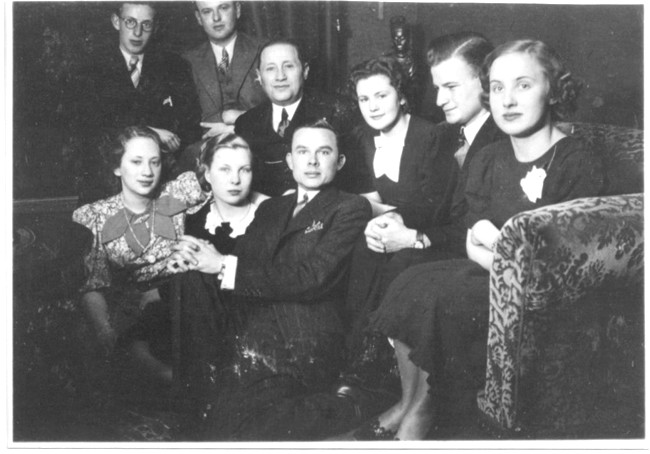 a unique gathering at (I suppose) in father Albert van Zuidens home at the Valkenboskade 400 in The Hague. I guess the year is 1938, maybe beginning of 1939. Apparently it was a social happening including: back row from left to right: Herman van Zuiden (son of Alberts brother Bernard), Max Cassuto, Albert van Zuiden, Hetty Winkel fiancee to Ernest Cassuto, who is sitting next to her and then Wies Houthuyzen Kerrebijn; sitting from left to right Puck (Remi) van Zuiden, Mary ('Zus') Houthuyzen Kerrebijn. Wies and Zus were best friends to Puck. The man in the middle is indicated as 'Dad Lioni'. |
||||
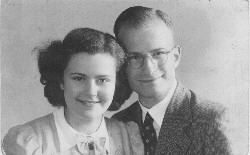 so
called engagement picture of Ernest and Hetty. so
called engagement picture of Ernest and Hetty.1940/1941? |
||||
| This is
the first page of the diary kept by Hetty in hiding. It is a very
religious booklet, a sad witness of her hopes and faith and the bond she
felt in this frightful period with Ernest. It consists of prayers and contemplations
about passages from the Scriptures. |
||||
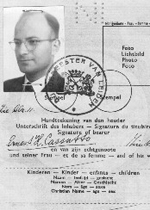 read also the story of Ernest Cassutto on the Cassutto Memorial pages by his son George; click on the picture left. In addition to this I copy a passage from the little autobiography of the reverend Tabaksblatt, that sheds light on the episode of Ernest and Hetty seeking refuge with the Christian congregation in The Hague: Toen de Tweede Wereldoorlog uitbrak werkte en woonde ik (Tabaksblatt) evenals (Jewish minister) Rottenberg in Den Haag. Het werk hier kreeg zulk een omvang, dat een meelevend echtpaar van de Vereniging "Elim" ons de mogelijkheid schonk om in het jaar 1938 te beginnen met het opzetten van een gebouw waar alle werkzaamheden zouden kunnen plaatsvinden. Dat gebouw werd in de zomer van 1940 in gebruik genomen. Een jaar lang konden wij da! gebouw aan de De Ruijterstraat in Den Haag nog intensief gebruiken. In de zomer van 1941 kwam daaraan een einde. Rottenberg werd door zijn moedig getuigenis tegen de Germaanse barbaren gevangen genomen en via Scheveningen, Amersfoort, Bu- chenwald werd hij in 1942 in Mauthausen vermoord. Ik kreeg in die tijd huiszoeking door enkele SS-ers en hun Nederlandse handlangers, waarbij mij te kennen werd gegeven dat "het Evangelie niet voor de Joden" was en ik met mijn werk moest stoppen. Het gebouw aan de De Ruijterstraat werd in beslag genomen en leeggeplunderd en uit was het! Het einde van een tijdperk in de geschiedenis van de zending onder de Joden in Nederland was gekomen. .. Het was juist in die dagen dat de Joden in hun nood hulp kwamen zoeken bij de kerk. Ik nam contact op met de Centrale Kerkenraad van de Hervormde gemeente in Den Haag en wijlen Dr. W. J. de Wilde zorgde er voor dat ik een (onbezoldigde ) aanstelling kreeg als hulpprediker bij de Hervormde gemeente, waardoor het mij mogelijk werd gemaakt de hulpzoekende Joden waar nodig was te helpen. Vele Joden zochten toen een toevlucht bij de kerk om zich tegen de dreigende maatregelen van de Duitse bezetters te beschermen. Verschillende van hen wilden gedoopt worden. Maar dat wees ik beslist van de hand. Het baatte immers niet meer. De bezetters hebben een datum voor "geldige dopen" vastgesteld op 31 december 1940. Wie na die datum gedoopt werd kwam niet meer onder de zgn. "verzachtende" omstandigheden. Maar op aandringen van kerkelijke zijde werd er van de Duitsers gedaan gekregen dat Joden die een zekere band met de kerk onderhielden voorzien konden worden van een "Beweis von Angehorigkeit", waardoor zij voorlopig van deportatie vrijgesteld werden. |
||||
page 1. letter Max Oct. 28 1945 back to the family page |
||||
|

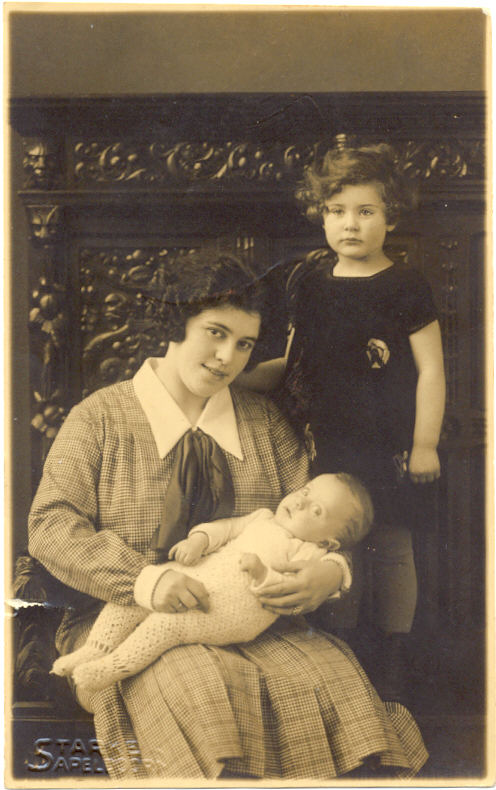
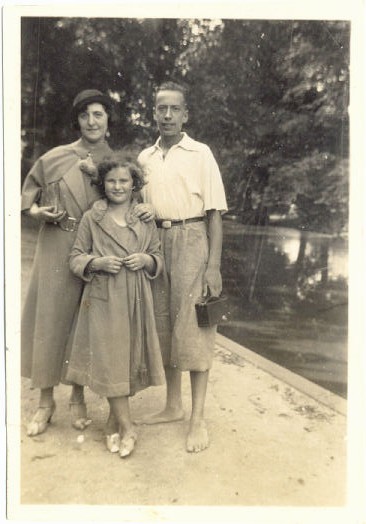 Hetty
with behind her her aunt Annie (sister to Caroline Cassuto-Winkel) and
Annie's son Dee (also a Dee, nicknamed "grote Dee, Big Dee").
Hetty
with behind her her aunt Annie (sister to Caroline Cassuto-Winkel) and
Annie's son Dee (also a Dee, nicknamed "grote Dee, Big Dee").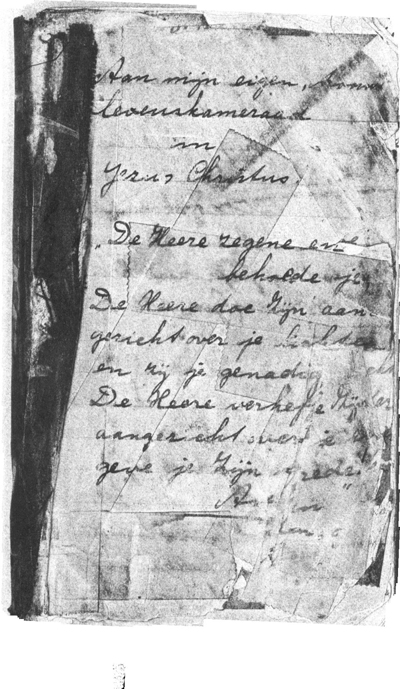 from
Ernest Cassutto's book
from
Ernest Cassutto's book